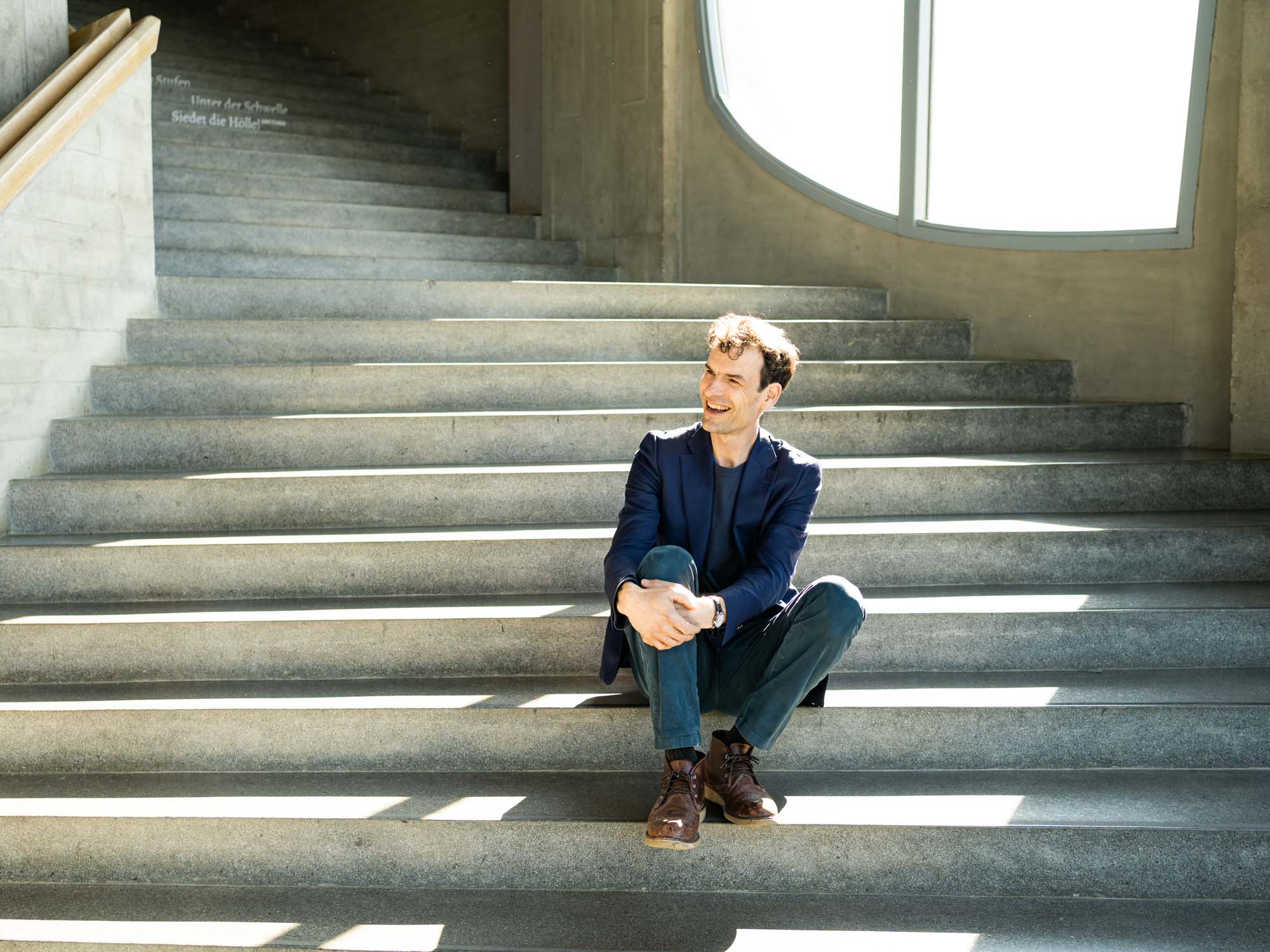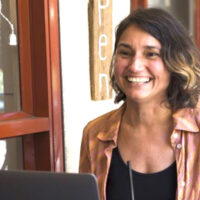This year Nathaniel Williams is working closely with the Youth Section team as he transitions into his leadership role in 2023. Laura Scappaticci asked him about the tasks he sees before him, his areas of focus, and his hope for youth and anthroposophy’s work in the world.
Laura Scappaticci What do you see as your initial tasks as you transition into the leadership of the Youth Section?
Nathaniel Williams I have a strong interest in what the younger generation is bringing spiritually out of who they are. Unlike any other section, the Youth Section actually focuses on a biographical time of your life and that time of life is the content. One of the major tasks for me is developing a spiritual ear for the network of impulses, dynamics, interests, passions, and challenges that are coming to life and living in these individuals and groups.
I also see from my work with young people in New York that there are some major challenges with environmental and cultural shifts in relationship to spiritual questions and spiritual striving. And one challenge, of course, is our new technological and digital revolution and what that means for the human being. There are also questions of justice and trying to picture a planet Earth in 50 years that we can be happy about—this is a big challenge. Also, there are a lot questions around and interest in spirituality. If you look back at 50 or 80 years ago, that was a really different. I think this is all really exciting and challenging to have as a point of departure today.

Scappaticci What are the most exciting and living aspects of your current work and how does that resonate with the Youth Section?
Williams For the last fourteen years I have been very fortunate to work with young people, and anthroposophy, and art. I feel it is such a blessing in life if your work can be aligned with what you feel is important, when you have that freedom to try to join together your ideals and your daily life. The challenge is discovering the best ideas and initiatives that are coming up between you, other people, and the greater community and trying to live them freely without looking for outer structures to give them direction. That is something about my work in New York that I deeply value. In addition, experiencing the generosity, solidarity and the support of thousands of people who also want to try to encourage these spaces. At the Goetheanum it is a bigger scale so I’m excited to try to live into that.
Freedom, work and a social disease
Scappaticci I think young people want their life and their work to be aligned in that way, and have it be seen and supported and not have to fit into any sort of box that doesn’t feel right to them. Some boxes might feel good and right. And that’s beautiful, too. But just to have that experience of alignment with work and life purpose is so special.
Williams You put your finger on a nerve of what I would call a kind of social disease around how we organize ourselves. Because typically we only imagine that people who are artists or researchers have that degree of freedom and everyone else is kind of doomed to wage slavery and the 9 to 5 and a mediocre quality of life. Even if you’re working in what we would consider a repetitive or more mundane situation, how could it be that we feel really good about our economy, on all levels, no matter where we are in the economy? And that’s a great goal to strive for. I know it’s not only on my mind, but on the minds of many economists. And of course, it’s a core question of social three folding. Joseph Beuys has a quote that he’s famous for. “Everyone is an artist” When you first hear that, you might think, “Well, that’s kind of silly.” But he was a real provocateur and I think when you get to know his work what he was saying is that everyone in society should feel that their daily contribution to society is freely given, and they think it is good and belongs to what they consider their own values. That there should be that feeling of “This is my work and I’m glad to be doing it and doing it well in the greater context of society that I live in.” That’s a good goal. How we get there is a fascinating question.

Opening anthroposophy
Scappaticci What do you think is important for the future of anthroposophy?
Williams It’s really interesting to look at where we are. We are almost at 100 years since the Christmas Foundation meeting and the re-founding of the Anthroposophical society, which was spiritually important for so many people in the movement. Over the last 100 years, it’s been a North Star, morally and spiritually. And looking now 100 years from that point, I feel like some of the major shifts that I can sense being asked of the movement are being able to be more articulate and clear about the contemplative practices that form the anatomy of the way your experience can change and your understanding can change when you work with anthroposophy. I feel that a lot more open discourse and also exploration related to meditation is going to be really important as anthroposophy continues to work its way into its own presence.
Rudolf Steiner’s genius and magnificence as an individual draws a lot of attention. And rightfully so. I would not like to diminish that in any way. But it’s interesting what came through that magnificence. His real impulse was actually a more shared contemplative path of inquiry and spiritual knowledge that wasn’t based on his particular gifts only. One of the things that inspires me so much about him is that he’s a very courageous spirit and bold spirit, and yet also one that ultimately wanted to try to make spiritual understanding and knowledge accessible for anyone who would like to try to develop that openness and path of experience and understanding.
So I feel like that is a cardinal challenge.
I also feel like anthroposophical social ideas are promising as related to social three folding. I just read a chapter from Dan McKannan’s book ‹EcoAlchemy›. He’s not an anthroposophist, but he writes this chapter about the impact of Anthroposophical inspired finance. We’re talking about billions of dollars going towards preserving land and giving that land to farmers who are doing sustainable agriculture. This is not so connected to the esoteric work, but it is something important because there is not a doubt that we are in a social political crisis. And we can anticipate that continuing until we try some new directions and ideas.
Living truth, living anthroposophy
Scappaticci How do we keep anthroposophy fresh and able to meet the world as it is?
Williams Steiner gave some lectures to a group of young and one of the things he said is that it would be a truly, truly depressing thing if answers were discoverable in books or formulas. Ultimately, we know that the highest truths are truths that really have to live. You can’t obtain truth, you must try to keep a living relationship to it as a living thing. We have to watch ourselves with any ideas and concepts. That’s generally true. But it is true for anthroposophy as well.
Scappaticci What can you sense about your work and the challenges of the future?
Williams I feel very strongly that the next four or five decades are going to be really important for the whole world. And I feel like it’s a time for anyone connected with the Anthroposophical movement to try to be alert and awake for what the questions of life are today, and these watersheds that are appearing on every side. We can try to live with them, and face them and bring creative, engagement to them. I feel that it’s really an important time. And I know it’s a common thing for people to feel this about their time, but there are things we’re living through that are incomparable to anything in history from a basic biological planetary level to a technological level and cultural level, and I think spiritually, too. It is quite a time to be doing this work. And so with humility and this kind of serious intention, I’m going into this new task.





